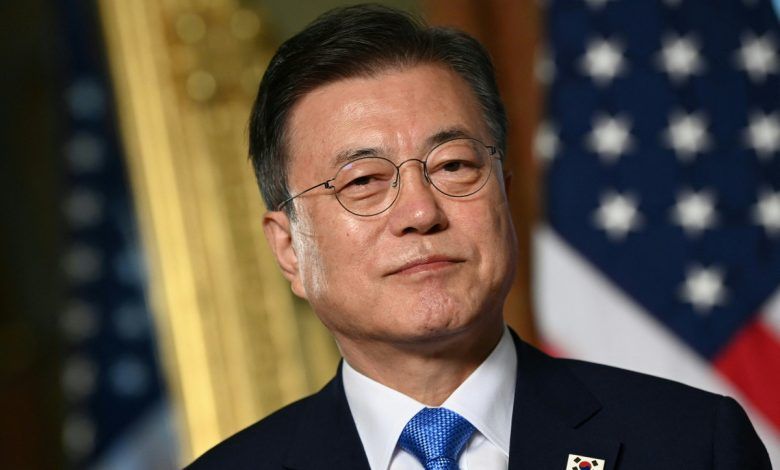Former South Korean President Moon Jae-in Indicted in High-Profile Corruption Scandal

South Korea’s political landscape has been jolted once again, as former President Moon Jae-in was formally indicted on corruption charges Thursday, marking a dramatic turn for the ex-leader known internationally for his diplomatic efforts with North Korea.
Prosecutors at the Jeonju District Prosecutors’ Office allege that Moon facilitated the improper appointment of his son-in-law to a top position at budget airline Thai Eastar Jet, receiving illicit financial benefits in the process.
“Former President Moon has been indicted for corruption involving a sum of 217 million won (approximately $150,000) tied to the employment of his son-in-law at a commercial airline,” the office stated.
According to investigators, the son-in-law—who was later divorced from Moon’s daughter—was appointed managing director despite having no qualifications or experience in the aviation sector. Prosecutors say he often abandoned his duties and failed to fulfill basic responsibilities of the role.
More troubling, the airline allegedly used the high-level appointment as a political favor, hoping to curry influence with Moon during his time in office. Thai Eastar Jet was reportedly under the control of a former lawmaker affiliated with Moon’s Democratic Party, raising further concerns over political favoritism and abuse of office.
“The compensation paid to the son-in-law between 2018 and 2020 was not legitimate remuneration, but rather thinly veiled bribes intended for the president himself,” prosecutors claimed.
Moon, who served from 2017 to 2022, rose to global prominence for his efforts to broker peace on the Korean peninsula, even orchestrating historic dialogue between North Korean leader Kim Jong Un and former U.S. President Donald Trump.
His indictment now places him alongside another embattled leader, former President Yoon Suk Yeol, who is facing insurrection charges for imposing martial law in a controversial December 3 move. Yoon’s decree lasted just six hours before it was swiftly overturned by lawmakers, yet the consequences could be severe: life imprisonment or even the death penalty, though executions in South Korea have been under a de facto moratorium since 1997.
Moon’s legal troubles mark a stark fall from grace and further deepen the turmoil engulfing South Korea ahead of its pivotal June 3 general elections. With two former presidents now embroiled in criminal proceedings, public confidence in political leadership is under intense strain.
This latest development underscores a broader pattern in South Korea’s tumultuous political history, where heads of state have frequently found themselves entangled in scandal after leaving office.
As the country braces for its next chapter, the indictment of Moon Jae-in may have far-reaching implications—both legally and electorally.





